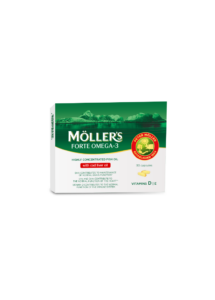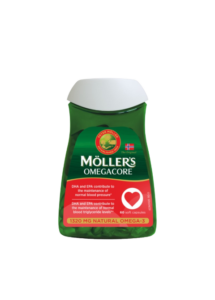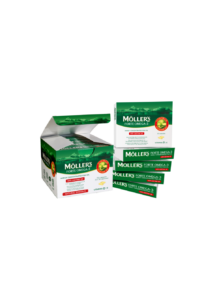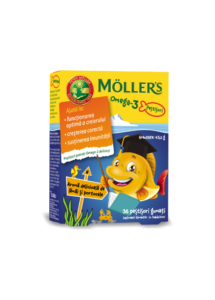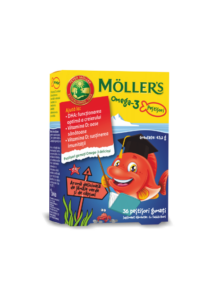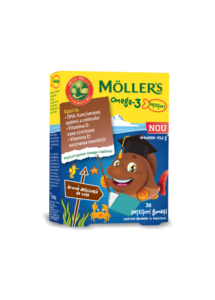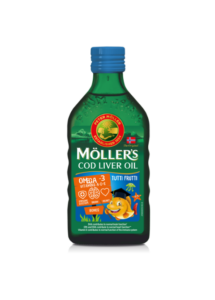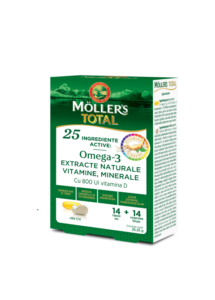Ako se pitate: “Koje vitamine trebam uzimati?”, vaše tijelo je najbolje mjesto za pronaći odgovor. Nedostatak vitamina može se manifestirati kao fizički simptomi koje je lako prepoznati ako znate kako.
Home » Nedostatak vitamina? Vaše tijelo će vam reći

Pročitajte više članaka o vitaminima i mineralima
Svi znamo da je važno unositi sve vitamine koji su nam potrebni da bismo ostali zdravi. Nedostatak vitamina može imati mnogo različitih učinaka na tijelo. Ako znate što tražite, možda ćete sami moći otkriti nedostatak. Naš praktični popis za provjeru vitamina u nastavku otkriva izdajničke znakove nedostatka.
Vitamin A
Pomaže u održavanju normalnog vida, kože, sluznice i imunološkog sustava.
Simptomi nedostatka:
- Suhe oči
- Smanjena sposobnost vida pri slabom osvjetljenju / noćno sljepilo
- Smanjena otpornost na infekcije
Vitamin B1 (tiamin)
Pomaže u održavanju normalne funkcije srca, živčanog sustava, proizvodnje energije i mentalnih funkcija.
Simptomi nedostatka:
- Poteškoće s koncentracijom
- Utrnulost prstiju na rukama i nogama
- Zbunjenost
- Problemi s ravnotežom
Vitamin B2 (riboflavin)
Pomaže u održavanju normalne kože, vida, metabolizma, živčanog sustava, sluznica i crvenih krvnih stanica.
Simptomi nedostatka:
- Ranice u ustima i pukotine u kutovima usta
- Svrbež očiju
- Suha koža
- Lomljivi nokti
Vitamin B3 (nikotinamid/niacin)
Pomaže u održavanju normalne kože, sluznica, metabolizma, mentalnih funkcija i živčanog sustava.
Simptomi nedostatka:
- Kožni osip
- Povraćanje
- Proljev
Vitamin B6 (piridoksin)
Pomaže u održavanju normalnog imunološkog sustava, hormonalne ravnoteže, metabolizma, živčanog sustava, distribucije proteina, mentalnih funkcija i stvaranja crvenih krvnih stanica.
Simptomi nedostatka:
- Depresija
- Grčevi
- Anemija
Vitamin B 8 (biotin)
Pomaže u održavanju normalne kože, kose, metabolizma, sluznice, živčanog sustava i mentalnih funkcija.
Simptomi nedostatka:
- Mučnina
- Depresija
- Bol u mišićima
- Promjene na koži
Vitamin B9 (folat/folna kiselina)
Pomaže u održavanju normalne diobe stanica, proizvodnje krvi, mentalnih funkcija i imunološkog sustava.
Simptomi nedostatka:
- Mučnina
- Proljev
- Razdražljivost
- Zaboravnost
- Glavobolja
- Anemija
Vitamin B12
Pomaže u održavanju normalnog živčanog sustava, metabolizma, mentalnih funkcija, imunološkog sustava, stvaranja crvenih krvnih stanica i diobe stanica.
Simptomi nedostatka:
- Anemija
- Proljev
- Zaboravnost
- Bolan jezik
Vitamin C
Pomaže u održavanju normalne proizvodnje kolagena za kožu, kosti i hrskavicu. Također pomaže u održavanju normalnog imunološkog sustava, mentalnih funkcija i apsorpcije željeza. Štiti stanice od oštećenja slobodnim radikalima.
Simptomi nedostatka:
- Krvarenje kože i desni
- Sporo zacjeljivanje rana
- Razdražljivost
Vitamin D
Pomaže u održavanju normalnog unosa i distribucije kalcija i fosfora. Također pomaže u održavanju mišića, kostiju, zuba, imunološkog sustava i diobe stanica.
Simptomi nedostatka:
- Oslabljen imunitet
- Bolovi u zglobovima i skeletu
- Kosti koje se lako lome
Vitamin E
Pomaže u održavanju normalne zaštite stanica od oksidativnog stresa.
Simptomi nedostatka:
- Vizualni poremećaji
- Nesiguran hod
Vitamin K
Pomaže u održavanju normalnih kostiju i zgrušavanju krvi.
Simptomi nedostatka:
- Krvarenje iz nosa
- Sporo zgrušavanje krvi
Ako sumnjate da imate bolest nedostatka, zamolite svog liječnika da provjeri razine vitamina u vašoj krvi. Ako vam je dijagnosticiran nedostatak, liječenje uključuje primanje velikih doza vitamina dok se vaše tijelo ne “napuni”. Obično ćete nastaviti s manjom dozom kako biste osigurali da dobijete dovoljno vitamina. Liječnik vas također može savjetovati o vašoj prehrani kako biste osigurali da u budućnosti unosite dovoljno različitih vitamina.
Izvor: Felleskatalogen, norveška zdravstvena informatika, sml.snl.no
What is good health?
Do you have a good lifestyle?
Lifestyle simply means the way in which you live. Health and lifestyle go hand in hand. You might feel you have a good lifestyle if you are physically active, eat healthily and generally experience a sense of wellbeing. Conversely, if you want good health you should also have a good lifestyle.
Physical activity is the major contributor to a good lifestyle, but diet, drugs, stress, sleep and social conditions are also play an important role. Being able to use the body properly to avoid injury also affects lifestyle. Physical activity can also prevent depression and help you to recover more quickly from mental illness, both of which obviously affect your lifestyle.
Diet can be a difficult topic for many. Perhaps you eat too much or too little or maybe you find it hard to know what foods to combine to have a balanced diet. It’s also important to eat food that contains important vitamins, minerals and dietary fibre, omega-3 and antioxidants. On top of all this, you also need to get enough energy, protein and the correct fatty acids. The requirement for these nutrients changes throughout your life. When you are older you also have different requirements than children and younger adults. Women also have different requirements than men. Pregnant and breastfeeding mothers also have special requirements.
When you get older, you lose muscle mass and your body requires less energy and therefore less food. You may lead a less active life than you did before, which is why you require less food. However, your need for minerals, vitamins and other nutrients remains the same. Of course, there are plenty of healthy and active older people, but when you reach 70 to 80 years of age, it’s easier to become ill, especially during flu season.
Some steps you can take to improve your lifestyle and health are to:
- eat a healthy and varied diet
- stay active
- watch your weight
- avoid too much alcohol and don’t smoke
- get enough sleep
- think positive
- practise good hygiene
What is good quality of life?
The World Health Organisation (WHO) defines quality of life as a state where the individual can realise their potential, cope with normal stressful situations, work in a rewarding and positive way, and be able to contribute to others and society.
Quality of life is a wide and somewhat diffuse concept that includes joy in, and a desire for, life. These are values that are rather felt than measured, which in turn are based on personal environment and choices. Quality of life doesn’t necessarily depend on being healthy or sick. It’s the moments between worries, sorrows, problems and ailments that matter. For example, if you have a chronic illness, a feeling of mastery can be important when talking about quality of life.
To sum up, quality of life is a combination of health, lifestyle, networks and social support. It’s about experiencing joy, meaning in life, satisfaction, security and a sense of belonging, as well as being able to use your strengths. It’s also about feeling interest in life, coping with everyday situations and a being committed to something or someone. If you have good quality of life, you will be able to cope better with the inevitable stressful situations in life.
Naši proizvodi
-
MÖLLER'S FORTE OMEGA 30 kapsule
-
MÖLLER'S OMEGACORE
-
MÖLLER'S FORTE OMEGA 150 kapsule
-
MÖLLER'S OMEGA 3 RIBICE s okusom NARANČE I LIMUNA
-
MÖLLER'S OMEGA 3 RIBICE s okusom JAGODE
-
MÖLLER'S OMEGA 3 RIBICE s okusom COLE
-
MÖLLER'S OMEGA 3 ULJE JETRE BAKALARA s okusom TUTTI FRUTTI
-
MÖLLER'S OMEGA 3 ULJE JETRE BAKALARA s okusom LIMUNA
-
MÖLLER'S TOTAL
Saznajte više
Program vježbanja za starije osobe
ZDRAVE KOSTI ZDRAVO STARENJE
Zdrava prehrana tijekom trudnoće
MOZAK ZDRAVO STARENJE
Dobro zdravlje, način života i kvaliteta života – što sve to znači?
BAKALAR ZDRAVO STARENJE
Pronađite inspiraciju na našem Instagramu
This error message is only visible to WordPress admins
Error: Access Token is not valid or has expired. Feed will not update.
